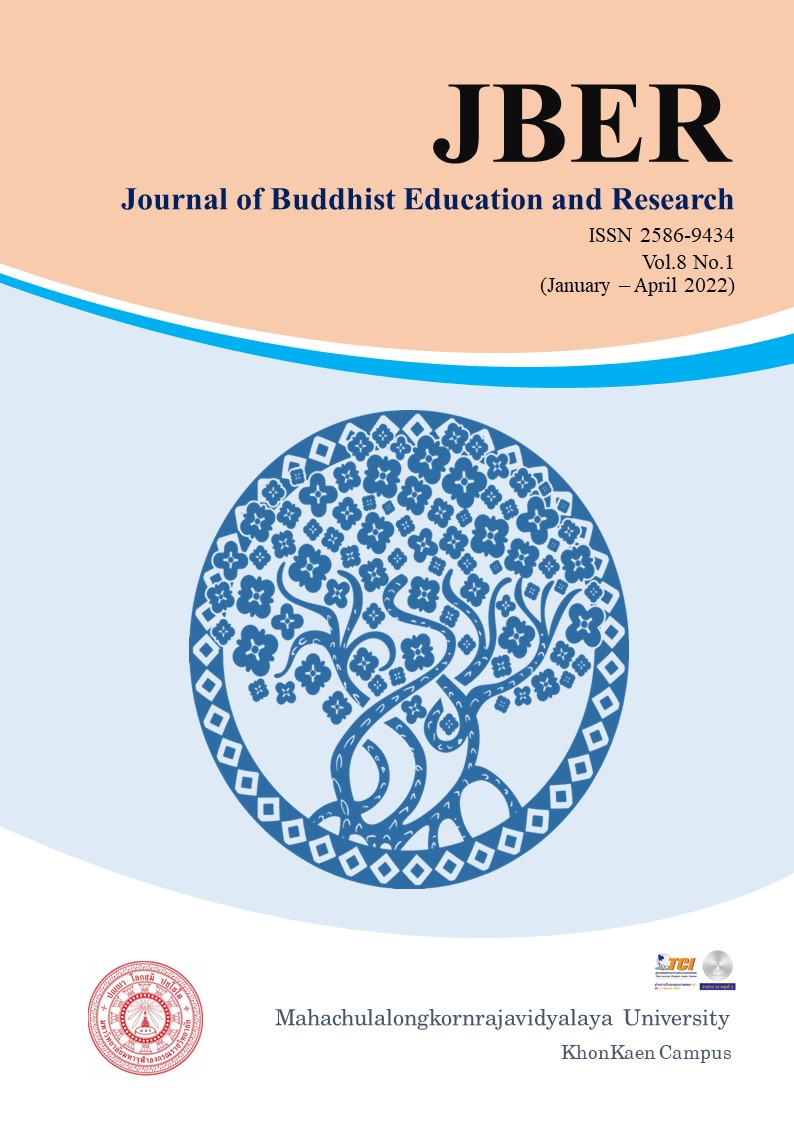TAXATION EFFICIENCY OF THE REVENUE DEPARTMENT IN CRISIS: A CASE STUDY OF THE REGIONAL REVENUE OFFICE 5
Keywords:
Efficiency; Taxation; CrisisAbstract
The objectives of this study were 1) to study the efficiency of tax collection in crisis of Area Revenue Office which is under The Regional Revenue Office 5. 2) to study opinions about tax collection management in crisis of government officer in Area Revenue Office which is under The Regional Revenue Office 5. 3) to provide guidance for increase the efficiency of tax collection in crisis. The data was conducted by collecting secondary data in fiscal year 2019 and 2020 from The Regional Revenue Office 5 and analyzed by using Data Envelopment Analysis (DEA) to measure the efficiency of tax collection. Including with primary data from In-depth Interview to study opinions about tax collection management in crisis, which covers data collection from 13 Senior Professional level government officers.
The results found that In fiscal year 2019 and 2020, Rayong Area Revenue Office and Samutprakan Area Revenue Office 3 have very high level of overall efficiency and have operated at the appropriate level. Except for considering only case 2) of fiscal year 2020, found only one area has a very high level of overall efficiency and operated at the appropriate level increasing from fiscal year 2019 which is Chonburi Area Revenue Office 1. In part of a study of opinions about tax collection management in crisis found that The Revenue Department has adapt the Tax Collection Management Plan by applying Digital Technology and In-depth Data Analytics to tax collection management. Area Revenue Office which is under The Regional Revenue Office 5 also adapt the Action Plan to conform with the changed of Tax Collection Management Plan. And the overall organization structure is flexible and able to adapt the operations as appropriately under crisis. As well as the organization have followed the Tax Collection Management Plan of The Revenue Department in order to have efficiently tax collection management. Also to enhance liquidity and relieve the tax burden for taxpayers in crisis.
References
กรมสรรพากร. (2563). แผนยุทธศาสตร์กรมสรรพากร ประจำปีงบประมาณ พ.ศ.2563 – 2565. สืบค้นเมื่อ 28 กรกฎาคม 2563, จาก http://download.rd.go.th/fileadmin/download/plan/RD_plan_63.pdf.
_______. (2563). สรรพากรช่วยบุคคลและผู้ประกอบการที่ได้รับผลกระทบจาก COVID-19 ผ่านมาตรการภาษีต่างๆ มูลค่ากว่าแสนล้านบาท. สืบค้นเมื่อ 1 สิงหาคม 2563, จาก https://www.rd.go.th/publish/fileadmin/user_upload/news/news34_2563.pdf.
นงลักษณ์ สิงหาท้าว. 2557. การวัดประสิทธิภาพการผลิต โดยใช้เครื่องมือ DEA. วิทยาศาสตรมหาบัณฑิต สาขาวิชาการจัดการโลจิสติกส์และโซ่อุปทาน. มหาวิทยาลัยบูรพา.
วันวสา วิโรจนารมย์ และคณะ. (2562). ประสิทธิภาพการจัดเก็บภาษีการรับมรดก: กรณีศึกษาสำนักงานสรรพากรพื้นที่กรุงเทพมหานคร. วารสารสหวิทยาการวิจัย: ฉบับบัณฑิตศึกษา, 8(1), 130-139.
อรนุช รู้ปิติวิริยะ และคณะ. (2559). การวัดประสิทธิภาพการดำเนินงานด้านการจัดเก็บรายได้ขององค์การบริหารส่วนตำบลด้วยวิธีการวิเคราะห์เชิงโอบล้อมข้อมูล (DEA : Data Envelopment Analysis) ศึกษากรณีองค์การบริหารส่วนตำบลในเขตจังหวัดพระนครศรีอยุธยา. รายงานสืบเนื่องจากการประชุมวิชาการระดับชาติ มหาวิทยาลัยเทคโนโลยีราชมงคลสุวรรณภูมิ ครั้งที่ 1. สืบค้นเมื่อ 28 กรกฎาคม 2563, จาก http://www.rdi.rmutsb.ac.th › digipro › proceedings.
อัจฉราภรณ์ สอนพรม และ จินตนา สมสวัสดิ์. (2559). การศึกษาประสิทธิภาพการจัดเก็บภาษีของสรรพากรรายจังหวัดในภาคตะวันออกเฉียงเหนือ ด้วยแบบจำลองการวิเคราะห์ประสิทธิภาพเปรียบเทียบภายในกลุ่ม. วารสารวิทยาลัยบัณฑิตศึกษาการจัดการ มข, 9(2), 318-333.





